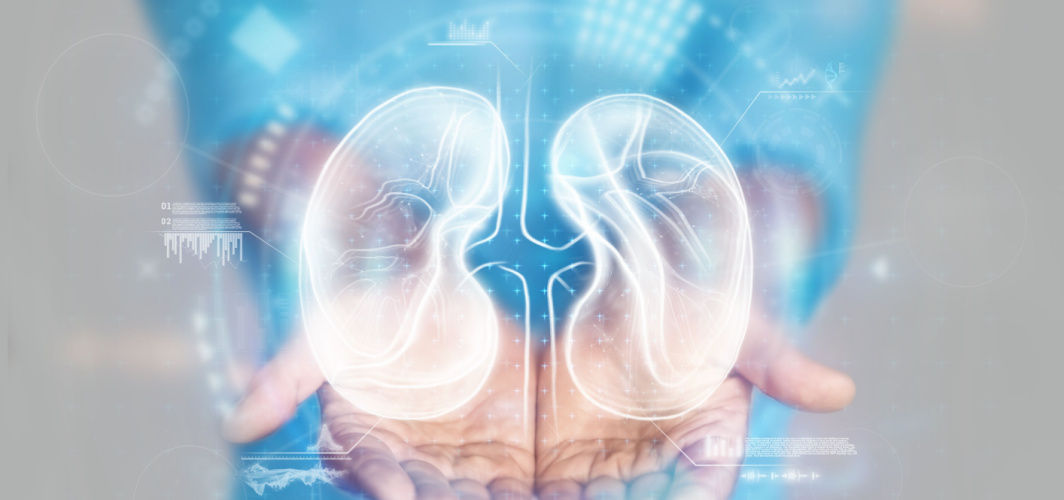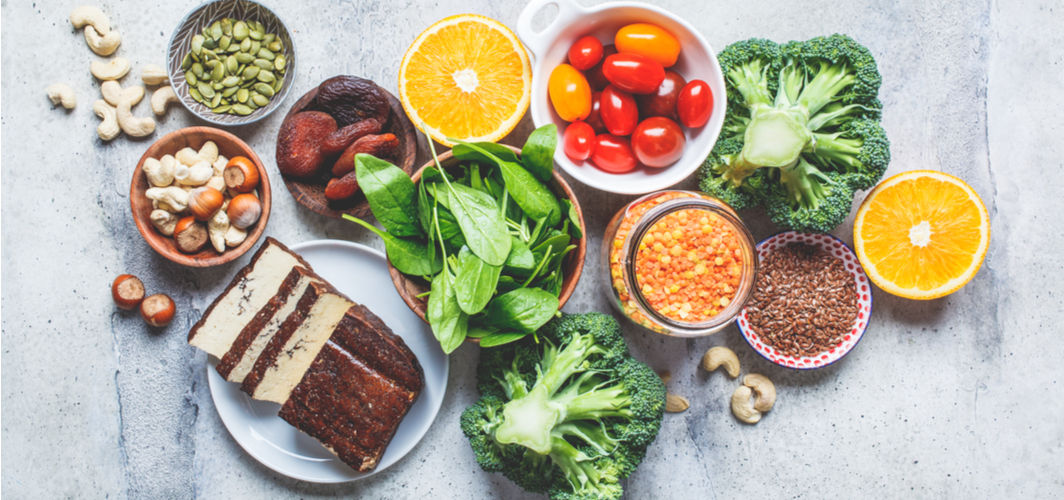General Health
Diet and Nutrition Guide for Kidney Patients
7 min read
By Apollo Pharmacy, Published on - 26 October 2023, Updated on - 27 October 2023
Share this article
0
1 like

Proper diet and nutrition play a crucial role in managing kidney health. Our food directly affects our kidneys, as they filter waste products and excess fluids from our blood. When the kidneys are not functioning properly, waste products and fluids can accumulate in the body. For individuals with kidney disease, it becomes even more important to follow a specialised diet. A healthy diet for kidney patients helps to maintain optimal kidney function and manage associated conditions like high blood pressure and diabetes. By understanding the impact of diet on kidney disease, individuals can make informed choices about the foods they consume. They can follow a diet chart for kidney patients that includes recommendations on foods to avoid with kidney disease for proper kidney care.
What does a Kidney-Friendly Diet Consist of?
A kidney-friendly diet plays a crucial role in managing kidney disease and promoting overall health. To meet the nutritional needs of kidney patients, it is essential to pay attention to the intake of essential nutrients such as:
1. Protein
Protein is important for repairing and building tissues, but excessive protein intake can burden the kidneys. Therefore, it is recommended to consume high-quality protein in moderation.
2. Carbohydrates
Carbohydrates are the body's primary source of energy. Choosing complex carbohydrates like whole grains, fruits, and vegetables instead of refined sugars and flour can help maintain stable blood sugar levels and prevent complications.
3. Fats
Healthy fats found in avocados, nuts, and olive oil are beneficial for kidney health. They provide essential fatty acids and promote heart health.
4. Sodium
Kidney patients need to limit their sodium intake. Excessive sodium intake can lead to fluid retention and high blood pressure. Processed foods, canned soups, fast food, and restaurant meals are high in salt and foods to avoid with kidney disease.
5. Fluids
Managing fluid intake is crucial for individuals with kidney disease, as impaired kidney function may lead to fluid retention. It is important to follow guidelines provided by your doctor regarding fluid restriction to maintain proper hydration levels.
Incorporating Kidney-Friendly Foods into Your Diet
Following a kidney-friendly diet with the right food for kidney patients is necessary for managing kidney disease. Add foods and cooking processes that do not burden the kidneys into your dietary routine.
1. High-quality proteins
Opt for high-quality protein sources like:
- Lean meats
- Poultry
- Fish
- Eggs
If you are a vegetarian or vegan, include plant-based protein options like beans, lentils, tofu, and quinoa. However, be cautious of their phosphorus content.
2. Potassium
Boiling or soaking vegetables can reduce their potassium content. Include low-potassium fruits like:
- Apples
- Berries
- Grapes
- Pineapple
Vegetables such as carrots, cucumber, lettuce, and zucchini are also good options. Limit high-potassium foods like bananas, oranges, tomatoes, potatoes, and spinach, which are foods to avoid with kidney disease.
3. Phosphorus
High phosphorus levels can negatively impact kidney health. Limit foods rich in phosphorus, such as dairy products, nuts, seeds, whole grains, and processed foods. Instead, opt for low-phosphorus alternatives such as:
- Rice
- Fish
- Corn
- Lentils
- Beans
- Cabbage
Consult a doctor to use phosphate binders. These medications help control the amount of phosphorus absorbed from food.
Meal Planning for Kidney Patients
When it comes to designing balanced meals for kidney patients, it is important to focus on the right food for kidney patients, while being mindful of foods to avoid with kidney disease. Here are some sample meal ideas:
1. Breakfast
For breakfast, opt for oatmeal with fresh fruits and a sprinkle of cinnamon, whole wheat toast with scrambled egg whites and sliced tomatoes, dalia with veggies, or idlis with sambhar and coriander chutney.
2. Lunch
For lunch, consider a salad with mixed greens, grilled chicken breast, and a light vinaigrette dressing, or a serving of steamed vegetables and a small portion of brown rice, or chapatis, dal fry, and a vegetable dish.
3. Dinner
For dinner, try baked salmon with lemon and herbs, served with quinoa and roasted asparagus. Alternatively, you can enjoy a vegetarian stir-fry with tofu, bell peppers, and broccoli over brown rice, or a vegetable pulao.
4. Snacks
For snacks, choose slices of low-phosphorus fruits and vegetables like apple slices or carrot sticks.
Remember to incorporate a variety of nutrient-dense foods in your meals, including lean proteins, whole grains, fresh fruits and vegetables, and healthy fats. It is also essential to follow a diet chart for kidney patients.
Lifestyle Tips for Supporting Kidney Health
Lifestyle changes can bring about positive outcomes in kidney health.
1. Hydration
Work closely with a dietitian to design a diet chart for kidney patients to determine appropriate fluid intake.
- Drinking an adequate amount of fluids helps to flush out waste products and toxins from the body, reducing the burden on the kidneys. Kidney patients have to drink enough fluids to stay hydrated but within the limits set by their doctor.
- To increase fluid intake while adhering to fluid restriction limits, consume foods with high water content such as watermelon, cucumbers, and soups.
2. Physical Activity
Engaging in regular physical activity can have numerous benefits for kidney patients.
- Exercise helps to improve cardiovascular health, weight management, lower blood pressure levels, and help manage stress which are all important factors in supporting kidney health.
- Low-impact activities such as walking, swimming, cycling, and yoga are generally well-tolerated by most kidney patients. These exercises are gentle on the joints and help improve overall fitness without putting excessive strain on the kidneys.
Special Considerations for Indian Kidney Patients
Traditional Indian foods are rich in flavour, but they may not always align with a kidney-friendly diet. However, with some modifications, you can still enjoy your favourite dishes while taking care of your kidneys.
1. Indian Superfoods
Spices like turmeric, ginger, and fenugreek have numerous health benefits and can be included in the diet for kidney patients. These ingredients not only enhance taste but also provide antioxidants and anti-inflammatory properties.
2. Manage Spice Levels
It is important to manage spice levels by reducing or eliminating spicy ingredients like chilli powder or red chilli flakes. Instead, use milder spices like cumin, coriander, or turmeric to add flavour to your dishes.
3. Reduce Oil
Try to minimise the amount of oil used in cooking. Opt for heart-healthy oils like olive oil or canola oil instead of saturated fats like ghee or coconut oil. This will help in controlling calorie intake and maintaining a healthy weight.
4. Low On Salt
Instead of relying on salt for flavouring, experiment with herbs and spices to enhance taste without adding sodium. Lemon juice, garlic, ginger, or fresh herbs like coriander and mint can provide flavour with proper kidney care.
Conclusion
In conclusion, following a diet for kidney patients is essential for maintaining long-term kidney health. By making specific dietary choices, individuals with kidney disease can help slow the progression of the condition and manage their symptoms effectively. Consult a qualified dietitian who specialises in kidney disease and tailored diet chart for kidney patients. They will consider your individual needs and recommend servings to maintain kidney function while meeting your nutritional requirements.
FAQs
Q. Can kidney patients consume dairy products?
Yes, kidney patients can consume dairy products, but in moderation. Dairy products are a good source of protein and calcium. However, it is essential to choose low-fat or fat-free options to limit phosphorus and potassium intake.
Q. Is it safe for kidney patients to eat bananas?
Bananas are a nutritious fruit, but they are high in potassium. If your potassium levels are too high, it may be necessary to limit or avoid bananas and opt for lower-potassium fruits instead.
Q. Can nuts and seeds be included in the diet for kidney patients?
Nuts and seeds contain healthy fats and are a good source of protein and fibre. However, they are also high in phosphorus and potassium. Kidney patients should consult their dietitian to determine portion size and frequency of consumption.
Q. Can kidney patients eat tomatoes?
Tomatoes are a rich source of vitamins and antioxidants; however, they also contain potassium. Depending on your individual needs and the stage of kidney disease, you may need to limit or avoid tomatoes.
Q. Is it acceptable for kidney patients to consume processed foods?
Processed foods often contain high amounts of sodium, phosphorus additives, and unhealthy fats, and are foods to avoid with kidney disease. It is best to limit the consumption of processed foods and choose fresh, whole foods whenever possible.
General Health
Consult Top Nephrologists
View AllLeave Comment
Recommended for you

General Health
Losing Hair In Patches? It Can Be This Disease!
Alopecia areata is not curable but the resulting hair falls can be treated. Read our blog to understand the ways to cope with resulting hair fall.

General Health
Six Plant-Based Food Items That Replenish The Iron In Your Body
Plant-based foods have the potential to fulfil the iron requirements in your body. Read to know 6 such plant-based iron-rich foods.

General Health
5 Most Promising Health Benefits of Taking A Power Nap
Many individuals naturally get more drowsy in the afternoon, roughly 8 hours after waking up. Taking a "power nap" in the middle of the day will improve your health, patience, learning capacity, and efficiency.
Subscribe
Sign up for our free Health Library Daily Newsletter
Get doctor-approved health tips, news, and more.
Visual Stories

Science-backed Home Remedies for Burns and Blisters
Tap to continue exploring
Recommended for you

General Health
Losing Hair In Patches? It Can Be This Disease!
Alopecia areata is not curable but the resulting hair falls can be treated. Read our blog to understand the ways to cope with resulting hair fall.

General Health
Six Plant-Based Food Items That Replenish The Iron In Your Body
Plant-based foods have the potential to fulfil the iron requirements in your body. Read to know 6 such plant-based iron-rich foods.

General Health
5 Most Promising Health Benefits of Taking A Power Nap
Many individuals naturally get more drowsy in the afternoon, roughly 8 hours after waking up. Taking a "power nap" in the middle of the day will improve your health, patience, learning capacity, and efficiency.
